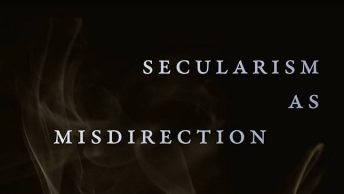There have been several pieces of commentary in the media critical of this framework. Madhav already pointed out MR Madhavan’s piece in the Indian Express, was also this piece by Arun Mohan Sukumar in the Hindu, and see this piece on the Indian Journal of Law and Society blog by Vasujith Ram. I’m sure there are many others out there in newspapers and across cyber-space.
A few quick thoughts:
1. I think most commentators find the current collegium system less than ideal. There is a strong feeling that it’s become too cloistered, too enmeshed in in-group judge politics, and not transparent enough. There have been concerns expressed that judges who should have been elevated to the Supreme Court were not and vice versa. There is heavy (although not complete) reliance on seniority norms for elevation of judges to the Court. As many have pointed out this is likely not the sign of a healthy system. If your argument for why you should be appointed to the Supreme Court and not someone else is your birthday than we are not really assessing what’s most important about being a judge. Instead, the reliance on seniority signals that no one trusts anyone’s capacity to assess quality and so better to have a seniority norm than allow favoritism. Now the collegium system and heavy reliance on seniority may be less than ideal, but that does not mean it’s untenable or even that it’s worse than the other available alternatives.
2. On its face the 99th amendment and JAC Bill seem like a pretty decent alternative. The judiciary would still have the predominant voice in choosing judges, but the government and term-limited appointed experts would also have a voice. This would arguably increase transparency and open up the famously enclosed world of the judges to a little bit more accountability. Most critiques though (understandably) center once again on trust. Under the 99th amendment Parliament would be able to change the composition of the JAC by passing another bill, which would not require another constitutional amendment. So although the composition of the JAC today tilts in favor of the judges it might not tomorrow. An activist government could potentially change the JAC however it wanted, perhaps using the pretext of an unpopular Supreme Court judgment.
3. How real you find this threat I think has to do with how entrenched you feel constitutional morality is in India (to borrow from Vasujith Ram’s piece quoting Ambedkar). If you do not believe Parliament will respect the separation of powers going forward or that the public would act as a check on an over-zealous government than you are clearly worried and think either the entire JAC is a bad idea (better for appointment of judges to remain with unelected judges) or that the composition of the JAC should be entrenched in the Constitution. There is also a personal value judgment – how insulated do you believe institutions should be from the people and their representatives. (On a side note, I do think it’s odd that the JAC is currently conceived of as 6 members. The opportunity to have a tie on a vote concerning the appointment of a potential judge is likely asking for trouble).
4. The 99th amendment and the JAC bill spell out a lot about the potential future of judicial appointments in India, but even if both are adopted many questions are still left unanswered. The JAC bill states that the JAC will have the power to spell out the rules by which it operates. It’s unclear if there will be the opportunity for public hearings or feedback during the appointment process, whether shortlists will be made public, or what process perspective judges will go through – interviews, hearings, etc. As far as I know there also has not been any proposal about what the JAC’s budget should be. One of the primary problems the collegium currently faces is being able to collect reliable information about all the potential nominees for a judgeship. The judges certainly don’t have time to do it themselves. There needs to be considerable infrastructure and staff in place to aid any JAC in sorting through fact and fiction about potential judges and assessing their record.
The challenge of judicial accountability is often conceptualized as one of who will guard the guardians. If the Court is suppose to check the abuses of the government, who will check the abuses of the Court. If an organization is set up to check the abuses of the Court who will then check that organization. It’s often portrayed as an endless game of Russian dolls. This seems clearly an incorrect way to theorize the problem. First of all, an institution like the JAC that draws members from a diverse set of constituencies is in turn held accountable by the diverse interests of these constituencies. Second, the obvious answer to who guards the guardians is the people. The more active, engaged, and public minded a citizenry and the more ways they have to exert their power in a constructive way the less one has to worry about the abuse or potential abuse of any one institution.






Dear Prof. Robinson,
Thank you for mentioning my piece. While I largely agree with you, I have to point out a couple of things.
I concur with you that is a trust issue – but my concerns are not unfounded. A reading of the Rajya Sabha debates here – http://164.100.47.5/newsynopsis1/Englishsessionno/229/Synopsis%20_E_%20dated%205.9.13.pdf – affirms my concern. The Law Minister Kapil Sibal says, "[t]he act of appointment is an Executive act.
Judiciary has taken over the Executive. That balance must be restored
back." Prof. Gopal Yadav adds, "[t]he situation has become so grave that now people do not believe in judiciary. Most of the allegation are against us. They only scrutinize about the work of parliament but they failed to reply anything about their own work. So the constitutional amendment bill brought by you is really necessary. They have different meaning of what they write and what they have in (sic)"
Several members here are pressing for appointments on purely caste/class lines!
One the last point that the ultimate guardians are the people themselves, I think matters will be helped if the JAC itself is made an accountable and transparent body. Nothing has been mentioned so far in the bill provisions regarding accountabiliy and transparency – and thus one of the major problems with the previous collegium system may remain unaddressed in the new system. The statement of objects lists accountability and transparency as one of the objectives, but I don't see how it can achieved without any specific provisions, especially with majority of the JAC members still being judges.
Vasujith, Thanks for the comment. I don't know if we are necessarily disagreeing. As I said whether one trusts Parliament to not overly tinker with the independence of the judiciary is very much a question of how much one trusts India's political culture overall. If one believes that the public will give a lot of scrutiny to the JAC in the future then one isn't too concerned that it's procedures aren't spelled out yet – better to give the JAC flexibility to get it right. If you are less trustful then you are worried. I'm not trying to say how trustful one should be, but just pointing out this tension. Similarly, you express concern that some members of Parliament believe judges should be appointed purely on caste/class lines. I think most readers of this blog would have a major problem with that. However, many readers might believe that caste/class should be one relevant factor while others think it shouldn't be a factor at all. Where you stand on this question will also affect whether you think the JAC is a good idea or not.